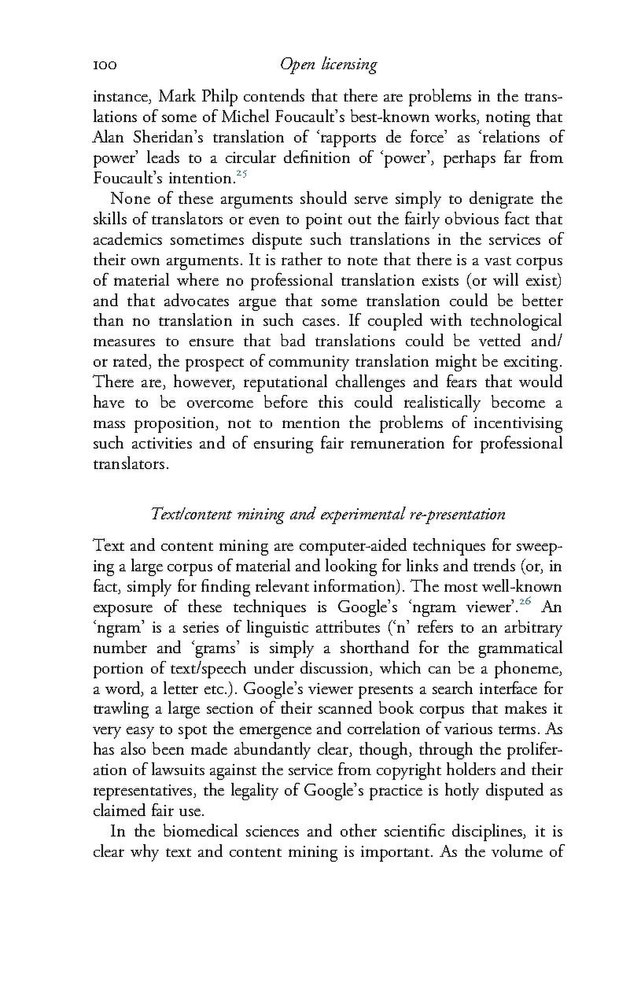instance, Mark Philp contends that there are problems in the translations of some of Michel Foucault’s best-known works, noting that Alan Sheridan’s translation of ‘rapports de force’ as ‘relations of power’ leads to a circular definition of ‘power’, perhaps far from Foucault’s intention.25
None of these arguments should serve simply to denigrate the skills of translators or even to point out the fairly obvious fact that academics sometimes dispute such translations in the services of their own arguments. It is rather to note that there is a vast corpus of material where no professional translation exists (or will exist) and that advocates argue that some translation could be better than no translation in such cases. If coupled with technological measures to ensure that bad translations could be vetted and/ or rated, the prospect of community translation might be exciting. There are, however, reputational challenges and fears that would have to be overcome before this could realistically become a mass proposition, not to mention the problems of incentivising such activities and of ensuring fair remuneration for professional translators.
Text/content mining and experimental re-presentation
Text and content mining are computer-aided techniques for sweeping a large corpus of material and looking for links and trends (or, in fact, simply for finding relevant information). The most well-known exposure of these techniques is Google’s ‘ngram viewer’.26 An ‘ngram’ is a series of linguistic attributes (‘n’ refers to an arbitrary number and ‘grams’ is simply a shorthand for the grammatical portion of text/speech under discussion, which can be a phoneme, a word, a letter etc.). Google’s viewer presents a search interface for trawling a large section of their scanned book corpus that makes it very easy to spot the emergence and correlation of various terms. As has also been made abundantly clear, though, through the proliferation of lawsuits against the service from copyright holders and their representatives, the legality of Google’s practice is hotly disputed as claimed fair use.
In the biomedical sciences and other scientific disciplines, it is clear why text and content mining is important. As the volume of
